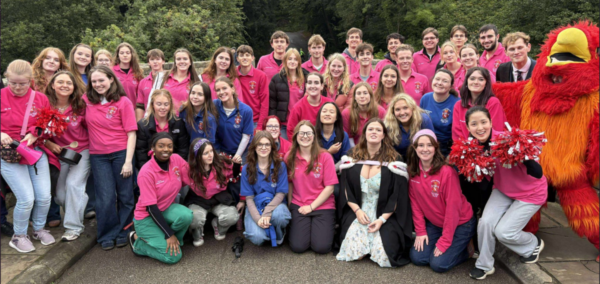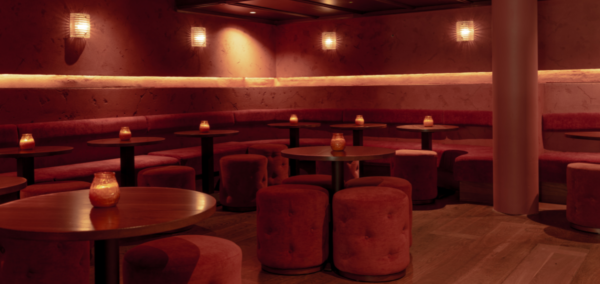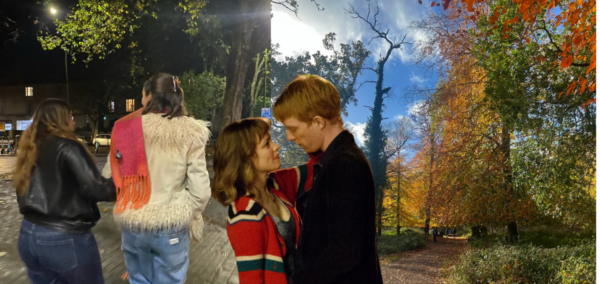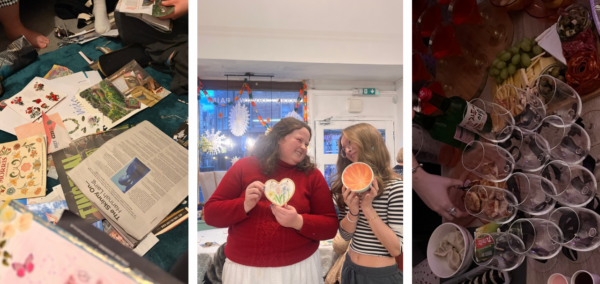
Going to Durham University as an international student: An honest account
What your resident Luxembourger has to say about Jimmy’s and poshness
Do you remember the start of Mean Girls, when Cady first enters her American high school? That’s how you can picture my arrival as an international European student in Durham.
Frankly, I had limited knowledge of the city itself. My perception of British uni experiences largely rested on Harry Potter and the likes of it. Not surprisingly, I expected majestic buildings, a vibrant social life, and long-standing traditions, unlike at many European universities. Did Durham manage to meet my idealistic vision? Reality has been one heck of a ride – with more ups than downs for sure – that I wouldn’t have wanted to miss.
But first, let me clarify that there’s no such thing as one definite Durham experience, much like there isn’t one type of international student. I don’t intend to speak on behalf of 4,500 students from all around the globe. This is rather a series of personal observations from a third year Luxembourgish student regarding quintessential features of the Durham student experience.
History all around you
 Durham’s historic appearance definitely influenced my decision to accept an offer here. In fact, the entire town appears like the manifestation of a fairy tale, with its medieval cathedral, the cosy cafés, the majestic cathedral, and the historic Bailey colleges. As a history student, this certainly emanates a lot of charm and intensifies the experience of studying here. At the same time, it feels oddly familiar to me: Medieval castles towering over small towns are a common sight in Luxembourg. Plus, the perception of centuries-old British schools runs deep internationally, perpetuated by Oxbridge’s reputation and exemplified in numerous non-British movies and TV shows (I’m looking at you, Maxton Hall).
Durham’s historic appearance definitely influenced my decision to accept an offer here. In fact, the entire town appears like the manifestation of a fairy tale, with its medieval cathedral, the cosy cafés, the majestic cathedral, and the historic Bailey colleges. As a history student, this certainly emanates a lot of charm and intensifies the experience of studying here. At the same time, it feels oddly familiar to me: Medieval castles towering over small towns are a common sight in Luxembourg. Plus, the perception of centuries-old British schools runs deep internationally, perpetuated by Oxbridge’s reputation and exemplified in numerous non-British movies and TV shows (I’m looking at you, Maxton Hall).
Most Read
While not every British university conforms to this stereotype, the Durham experience certainly feels like a dream come true for me as an international student, especially when I walk up to the Palace Green Library. You can therefore expect my initial disappointment at the Hill colleges and gown-less college formals. But just because they don’t conform to my preconceived notion does not mean they didn’t end up growing on me. Reality is, after all, more varied than a narrow stereotype.
Societies
Being an international student, I’m familiar with the pressure of making the most out of my Durham experience. I was always a very active person and involved in the extracurricular side of secondary school. Not surprisingly, the huge variety of collegiate and uni-wide societies and sport clubs feels like an all-you-can-eat buffet. Sometimes, I find myself overloading the plate, but I try my best to find a balance.
As an international student, I want to take the opportunity to do sports I’ve always wanted to try but have struggled to find options for. In Luxembourg, I can count the number of polo, rowing, and women’s field hockey clubs on one hand. But thanks to Durham, I am finally able to take up the opportunity and engage in new exciting sports. Even though I might not be the best at them, they are still very exciting and offer a chance to meet people.
Plus, the socials around the college bars are some of the most entertaining nights at uni, like straight out of a movie. Clubs like Jimmy’s are also a different night-out experience than the “balls” in Luxembourg, which are more glorified massive youth nights out in tents or rented-out communal halls and basements.
On friendship

Speaking of friends, I have never felt that being an international student made it particularly difficult to make friends. While this certainly doesn’t reflect everyone’s experience, I found the collegiate system and societies to be a safety net for finding like-minded people and integrating into Durham’s social life.
The numerous culture societies offer a welcoming, familiar space to ease homesickness or just to hear non-English songs on a night out. But the majority of my friends are home students. I found the experience of immersing myself in a foreign language and culture very intense but enriching, as many students on a year abroad surely agree with. Indeed, coming to uni all by yourself without any previous contacts is frightening, thus solidifying friendships as an important social pillar and helping you find a home away from home. In fact, I have found some of my closest friends here at uni.
Navigating uni in a foreign language
The English language now dominates my daily speaking, a drastic change for me as a European student. I have been very lucky to have received an education in numerous languages, thus turning the shift to English into a gradual progression from German and French. This doesn’t come without any challenges. Some of my sentences include a long explanation for a word that just slipped my mind. Other times, I find myself looking up the translation for a specific German term on my phone.
Before coming to uni, I wasn’t aware of my blatant German-sounding accent to British ears. Especially the difference in pronunciation between the letters r and w, which remains a struggle. Fortunately, though, I personally have not yet experienced being ridiculed for my accent.
What is poshness?
Durham is notorious for its high number of private-school-educated students. While this raises important questions regarding privileges, I feel disconnected from the conversation, like an observer. The concept of “poshness” was not really on my radar before joining uni. Sure, I had come across the term, but I did not fully comprehend the divide between private and state schools.
Like Cady, I found myself exposed to a whole new social system. Back in Luxembourg, the existence of such a gap remains unimaginable: Private schools are international schools, and the question regarding your secondary school in a country that small is only a chance to find out about mutual friends.
As a result, I find it quite hard to position international students within the discussion of poshness. Sure, the debate surrounding wealth and privileges concerns every Durham student. At the same time, the concept of poshness does not consider national differences and overlooks the vast range of international students’ experiences.




















